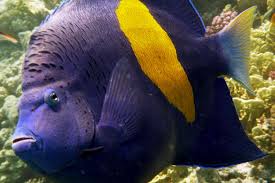
In the rich tapestry of mythologies around the world, dragons occupy a significant place as symbols of power, wisdom, and divine connection. Particularly in Chinese mythology, dragons are not just mythical creatures; they are seen as celestial beings that bridge the gap between humanity and the divine. These powerful creatures are often believed to have the ability to communicate with gods and spirits, offering insight into the mystical world and controlling forces that affect both the natural and supernatural realms. This article explores the fascinating legends of dragons and their supposed interactions with deities, how these connections shaped the cultures that revered them, and the symbolic meaning behind these myths.
The Dragon: A Divine Messenger
Dragons have long been associated with the divine in various cultures, but the relationship between dragons and gods is especially pronounced in Chinese mythology. Dragons in China are regarded as auspicious creatures, often associated with the heavens and the celestial order. They are believed to possess the ability to communicate directly with the gods, delivering messages, invoking divine blessings, and even controlling natural forces on their behalf. In this regard, dragons are not merely creatures of legend; they are revered as divine intermediaries between the mortal world and the realms of the gods.
In many ancient Chinese myths, the dragon is portrayed as a messenger of the gods, tasked with conveying important messages from the divine realm to humans. These messages were often related to the prosperity of the land, the well-being of the people, and the maintenance of cosmic order. The dragon’s role as a celestial messenger is also linked to its association with water and the weather. Since dragons were believed to control the elements, they could bring rain or prevent floods, acting on behalf of the gods to ensure that the forces of nature worked in harmony with the needs of humanity.
The Dragon Kings and the Celestial Beings
One of the most significant groups of dragons in Chinese mythology is the Dragon Kings, the powerful deities that govern the seas, rivers, and lakes. The Dragon Kings are often depicted as rulers of the Four Seas, each overseeing one of the four cardinal directions. These gods are not just dragons; they are considered to be powerful celestial beings who possess the ability to communicate with other deities and interact with the natural world.
According to myth, the Dragon Kings could summon storms, bring rain, and calm the seas, all at the behest of the gods. Their role as intermediaries between the mortal world and the divine realm made them vital figures in ancient Chinese religious practices. People often prayed to the Dragon Kings to ensure a good harvest, for protection from floods, or to seek guidance in times of trouble. The Dragon Kings’ communication with the gods was seen as a conduit through which the divine will could be conveyed to the people.
The Dragon Kings also had the ability to confer divine powers upon mortals, further cementing their role as intermediaries between humanity and the gods. In some stories, the Dragon Kings are shown granting favor to emperors, generals, and other important figures, providing them with supernatural abilities or blessings in exchange for loyalty and respect. This connection between the Dragon Kings and the gods highlights the belief that dragons were powerful beings with the ability to act as both servants and messengers of the divine.
The Role of Dragons in Chinese Imperial Court
The relationship between dragons and the divine was especially important in the context of the Chinese imperial court. Emperors in ancient China often believed that they were chosen by the heavens to rule, and they viewed themselves as intermediaries between the gods and the people. As part of this divine mandate, the emperor’s association with the dragon was considered a sacred bond that gave him the authority to rule. The emperor was often referred to as the “Son of Heaven,” a title that linked him directly to the celestial realm.
In this context, dragons were not just symbolic of imperial power; they were seen as divine protectors who communicated directly with the gods on behalf of the emperor. The emperor’s palace was often adorned with dragon imagery, and the dragon became a symbol of the emperor’s right to govern. Dragons were believed to ensure the emperor’s success and to guide him in making important decisions for the empire. In times of war or crisis, the emperor would often consult the gods, seeking their guidance through the dragon, who was considered the intermediary between the earthly and divine realms.
In addition to their role in royal symbolism, dragons were also thought to bring good fortune to the imperial family. Emperors often wore robes decorated with dragon patterns, as it was believed that the presence of the dragon would attract blessings and favor from the gods. The dragon, in this sense, was not just a symbol of power; it was also seen as a direct link to the divine, ensuring the emperor’s success and the prosperity of the nation.
Dragons and Their Interaction with Other Deities
Dragons in Chinese mythology are not limited to communication with human rulers. They are also believed to have the ability to interact with other deities and celestial beings. In some myths, dragons are depicted as playing a pivotal role in the divine hierarchy, serving as protectors of the heavens and the earth. They are often seen as companions to gods, assisting in their tasks or acting on their behalf in the mortal realm.
For example, in some versions of Chinese mythology, dragons are portrayed as the guardians of sacred treasures or powerful artifacts. These treasures are often bestowed by the gods, and the dragons are tasked with protecting them from those who would misuse them. In other myths, dragons are said to accompany gods on their journeys to the mortal realm, helping to carry out divine missions or deliver divine messages.
One of the most famous myths involving a dragon and a deity is the story of the Jade Emperor, the ruler of Heaven. The Jade Emperor is often depicted as a wise and powerful god who oversees all of Heaven’s affairs. In one myth, the Jade Emperor enlists the help of the dragon to help him maintain order in the celestial realm. The dragon is tasked with controlling the forces of nature, ensuring that the seasons change in their proper order and that the heavens remain in harmony. In this myth, the dragon’s role as a servant of the Jade Emperor highlights its position as a celestial being with the power to communicate with and serve the gods.
The Dragon as a Divine Protector
In addition to serving as a messenger, dragons were also viewed as divine protectors in Chinese mythology. They were believed to have the power to ward off evil spirits, protect individuals from harm, and safeguard sacred spaces. This role as protectors of both mortals and deities further underscores the dragon’s connection to the divine.
In many stories, dragons are shown as protectors of temples, shrines, and holy sites. These sacred spaces were believed to be under the watchful eye of the dragon, who would ensure that no harm would come to them. In some traditions, it was believed that the presence of a dragon in a temple would prevent evil spirits from entering, thereby ensuring that the temple remained a pure and sacred place.
Dragons were also considered to be protectors of the emperor and his court. In times of war or strife, the emperor would often call upon the dragon for protection, invoking its power to safeguard the empire and its people. The dragon’s protective role reinforced its status as a divine being with the ability to act on behalf of the gods and ensure the prosperity of the nation.
Conclusion: Dragons as Divine Intermediaries
The legends of dragons and their communication with the gods are an integral part of Chinese mythology, highlighting the deep reverence with which these creatures were held. Dragons were not just feared and admired for their power; they were also seen as divine intermediaries, capable of communicating directly with the gods and conveying their messages to humanity. Whether as messengers, protectors, or servants of the divine, dragons played a central role in maintaining the harmony between the celestial and mortal realms.
The relationship between dragons and the gods in Chinese mythology reflects the ancient belief in the interconnectedness of the natural and supernatural worlds. Dragons were believed to possess the power to shape the world around them, controlling the forces of nature and ensuring that the heavens and earth remained in balance. Their ability to communicate with the gods further emphasized their importance in maintaining the cosmic order, serving as a bridge between the mortal world and the divine realm.
The legacy of these dragon myths continues to influence Chinese culture and traditions today, where the dragon remains a symbol of strength, wisdom, and divine connection. The stories of dragons and their interactions with the gods remind us of the power of myth to shape our understanding of the world and the divine forces that govern it. Through these legends, the dragon remains a powerful symbol of the eternal bond between humanity and the divine.









